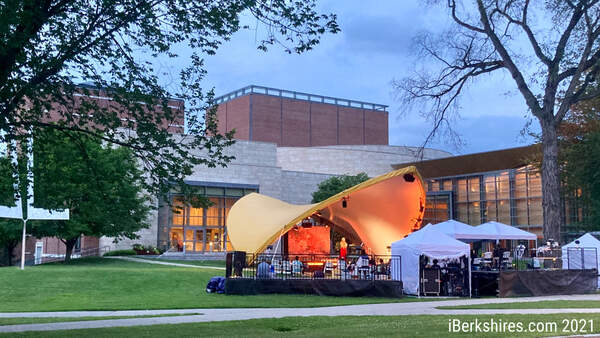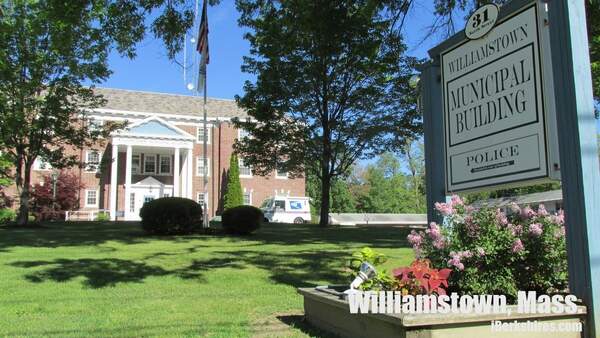Carbon Gets a COOL Reduction
 |
And New Hampshire is thrilled, said Wendy Penner, a member of the town's COOL (CO2 Lowering) Committee.
It all started last November, when the COOL Committee kicked off its "COOl Challenge." The event held at First Congregational Church was going to be a first step in a much bigger launch, but the small-scale, two-part meeting worked so well that it's become the model.
| Annual savings | Annual CO2 savings by pounds |
|
| Set your thermostat down 3 degrees in the winter | $130 | 1,000 |
| Unplug the dehumidifier | $280 | 2,200 |
| Replace five of your most used lights with compact fluorescent lights | $70 | 580 |
Source: New Hampshire Carbon Challenge
"It was so successful that we kept continuing to have these small events," said Penner. At the first meeting, a group is introduced to the issues of climate change and greenhouse gases and how calculate their carbon footprint. Two weeks later, the group members reconvene to discuss their figures and find out how to reduce them.
"We'll talk to nonprofits, schools, book clubs ... We want to keep bringing the message to small groups because it seems to work really well," she said. The goal is to reduce the town's emissions to 10 percent below its 2002 level by 2010.
How does New Hampshire fit in? The state's got a great online calculator, said Penner.
The New Hampshire Carbon Challenge encourages households to reduce their carbon footprints by 10,000 pounds a year. The challenge is all part of the Regional Greenhouse Gas Initiative, a nine-state agreement to first stabilize, then begin reducing carbon emissions by 10 percent by 2019.
Gov. Deval Patrick signed the agreement as one of his first acts as governor last year; former Gov. Mitt Romney had rejected the initiative. The state Senate approved the agreement last week; it now heads to the House. If both chambers approve it, it would become a binding law.
To help its citizens meet the carbon challenge, New Hampshire created a Web site with a built in "climate calculator" to determine not only how much carbon emissions they're reducing but how much money they're saving, too.
"It was the best compared to everything we saw on the Internet," said Penner. The only problem was it didn't have an option for out-of-state towns. So the COOL Committee contacted the Granite State and asked if Williamstown could be included. New Hampshire officials responded by opening it up to all New England residents. "They were very excited about the response," she said. Williamstown residents can also choose the town from a drop-down list of those participating in the Carbon Challenge.
Now Williamstown leads the pack at the New Hampshire Carbon Challenge; Dover and Durham are second and third, respectively. All told, the towns signed up on the New Hampshire site have reduced their carbon footprint by 554,871 pounds.
The COOL Committee is encouraging residents to use the climate calculator so that the town's progress can be tracked easier. Penner said the group also offers a printout of the calculator for people who not be as Internet savvy.
To find out how to reduce emissions in your household, the COOL Committee and Caretaker Farm are sponsoring another two-part event on Wednesday, Jan. 9, and Jan. 23, beginning at 7 p.m. both nights at the farm at 1210 Hancock Road. [ Edited 1/16: The Jan. 23 event has been postponed until spring.]
Matthew Baran, a student at Williams College, will explain how to get started in the COOL Challenge; two weeks later, Nancy Nylen, associate director of the Center of Ecological Technology, will answer questions about how to implement lifestyle changes to reduce carbon dioxide emissions.
Bridge Spann, one of the owners of Caretaker Farm, said the farm would be calculating its own carbon footprint so it can be compared after its new 9.90-kilowatt photovoltaic system is installed. Caretaker recently received nearly $65,000 in rebates and grants to help fund the system, which is expected to generate about 90 percent of the farm's electricity needs.
To help reduce emissions, Spann is encouraging participants to call a friend and carpool and to bring a cup or mug for a beverage. Hot and cold drinks and a snack will be served.
To find out more about the COOL Challenge or to set up an event for your group, visit the COOL Committee Web site.















